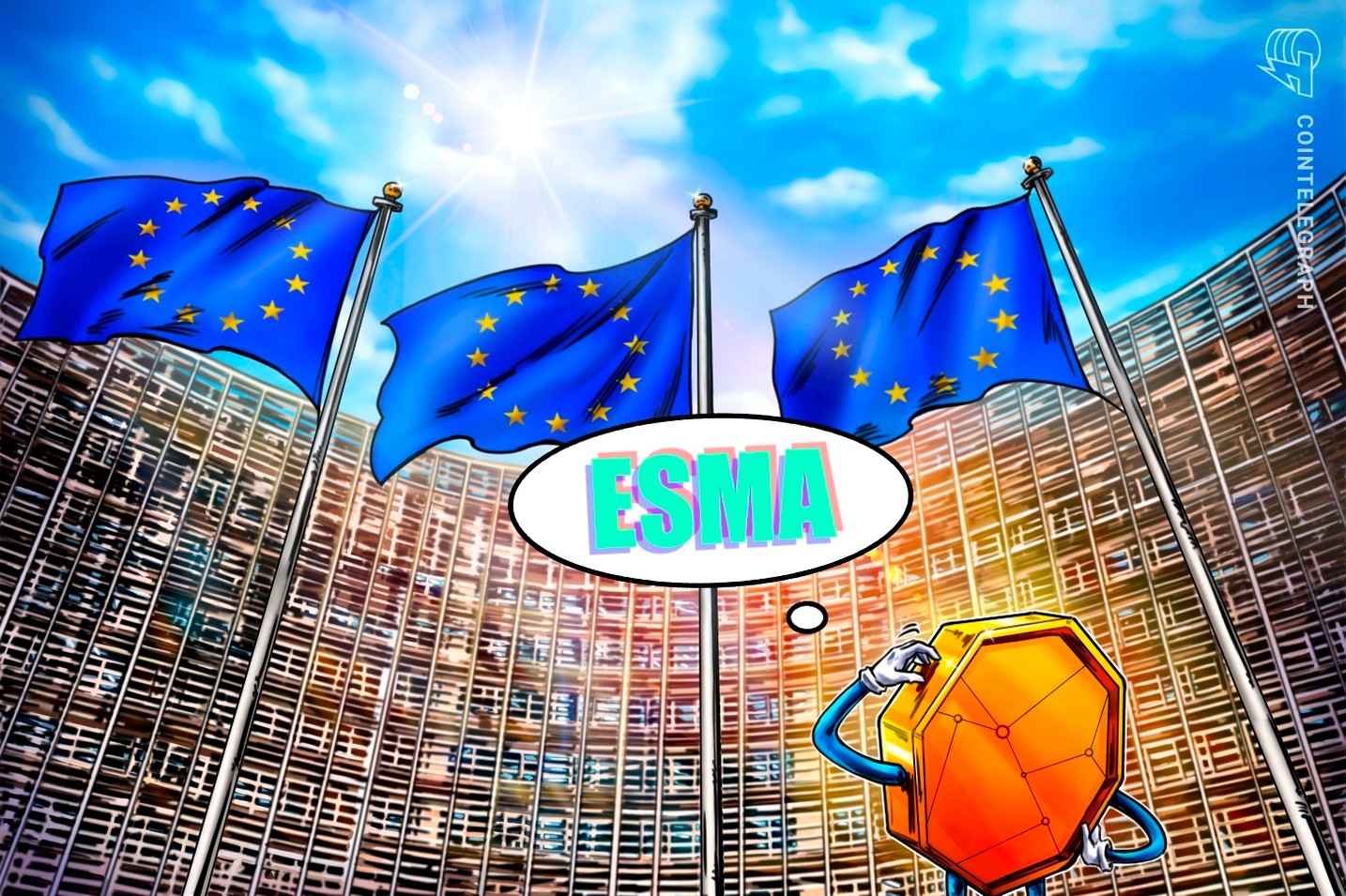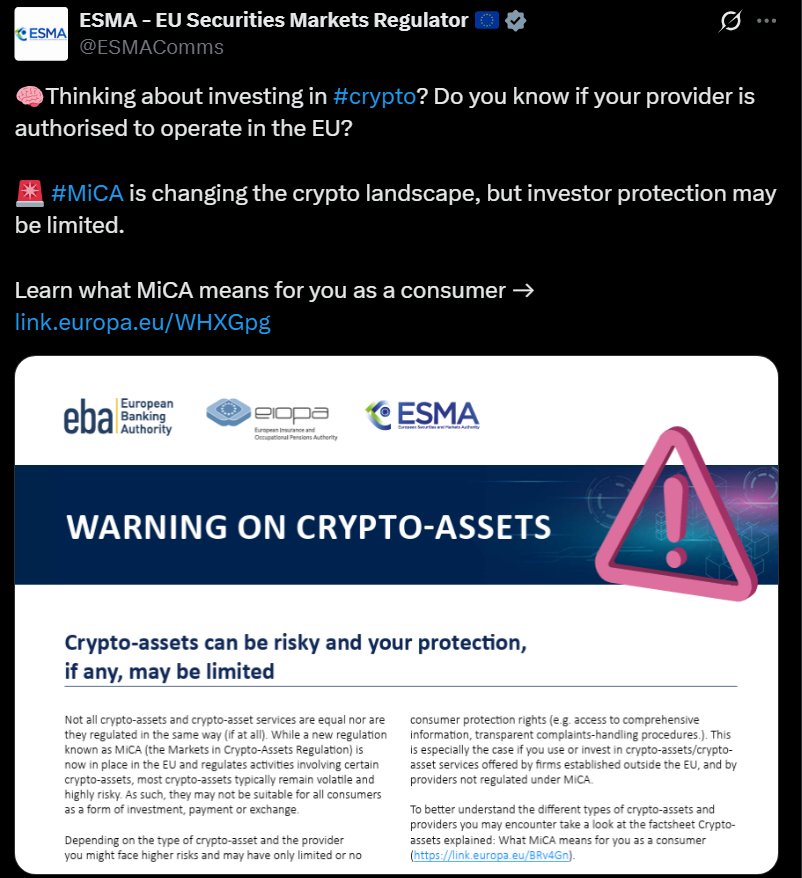
EU Considers Centralized Crypto Regulation to Harmonize Oversight
The European Securities and Markets Authority is set to enhance its regulatory role over cryptocurrency under the Markets in Crypto-Assets framework, aiming to resolve existing market supervision inconsistencies among EU member states.
The European Union’s financial oversight body, ESMA, is set to broaden its regulatory reach to encompass cryptocurrency exchanges and other operators as part of its ongoing quest to align supervision with the recently enacted Markets in Crypto-Assets (MiCA) framework.
In a recent discussion, Verena Ross, the chair of the European Securities and Markets Authority (ESMA), revealed that the European Commission intends to transfer the governance of various financial sectors, including cryptocurrency, from national authorities to ESMA. Ross indicated this reform is necessary to create “a more integrated and globally competitive” financial environment in the EU, aiming to resolve “ongoing fragmentation in markets” and move toward a cohesive capital market across Europe.
At present, in accordance with the MiCA regime, licenses for crypto-asset service providers are issued by national authorities instead of a centralized EU entity.
Smaller EU states have initiated the licensing process, with Lithuania granting its inaugural license to Robinhood Europe earlier in the year, while Malta has authorized significant exchanges such as OKX and Crypto.com. Bitstamp and Coinbase have received MiCA licenses in Luxembourg.
 ESMA
Source: ESMA Comms
ESMA
Source: ESMA Comms
Ross expressed concern that delegation of oversight to individual countries has led to inefficiencies, as each national authority must build its own regulatory expertise and systems. ESMA has voiced apprehensions about inconsistent licensing standards, referencing a review from July that questioned parts of Malta’s licensing approach.
Founded in 2011 as a response to the 2008 global financial crisis, ESMA aims to standardize financial regulations across the EU. MiCA, which takes effect in June 2024, represents the EU’s primary legislative effort to create a uniform framework for digital asset issuers and service providers across its 27 member states.
MiCA Faces Challenges with Cross-Border ‘Passporting’
Efforts by ESMA to consolidate and streamline crypto regulation are met with rising tensions among EU countries regarding the “passporting” rule—a key MiCA feature allowing licensed firms in one country to operate throughout the EU without needing additional approvals.
In a recent Cointelegraph podcast, Jerome Castille, the Head of Compliance at CoinShares, mentioned that one significant challenge for MiCA is ensuring uniform implementation across all member states. Marina Markezic, the Executive Director of the European Crypto Initiative, pointed out that the fragmentation does a disservice to MiCA’s fundamental goal of harmonization.
The passporting arrangement is contentious among major EU markets. Reports indicate that France is contemplating restrictions on crypto companies licensed in other EU countries but wishing to operate within its jurisdiction—a decision that critics argue would contravene principles of the single market.
Markezic stated, “From what we’ve seen, blocking passporting under MiCA is technically possible, though it comes with significant legal complexity.”
For further insights, check the Magazine: How crypto laws are changing across the world in 2025.


